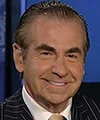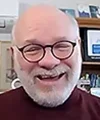Fiona Hutton, founder and CEO at Fiona Hutton & Associates, shares her insights as a female entrepreneur on how to overcome analysis by paralysis and how "Type A" executives can be effective leaders on the most recent Taking The Lead video podcast.
Here are excerpts from the full video interview:
What do you see as both the challenge and the opportunity of entrepreneurship?
Being an entrepreneur is certainly a different experience. For those that are starting out, after doing this for decades, is that there’s no predetermined owner's manual to on how you do this. I looked for 20 years!
Entrepreneurs, by nature, have to be comfortable with trial and error and being nimble. It's an exhilarating, wild ride, right? You're creating jobs for people and working on a sense of purpose. For me, it's a huge sense of pride to be able to do it.
I love the fact that my name is on the door. And I'm able and have the honor to work on the type of issues on which we work, to provide an opportunity for people to grow in my organization. Being an entrepreneur has its challenges, though. There's a lot of risk. There's a lot of bottom-line accountability.
You need to be incredibly resilient. I like to say all the time it's like water off a duck's back. You must be able to bounce right back up. We're willing to try a lot of things in that process. It’s a fantastic opportunity. As you mentioned, a lot of small agencies are looking at doing this, and I'm proud of that fact.
All of us in this community should be glad, because the majority of jobs in the United States are made up of small businesses, not by the mega-corporations. People like you and I are doing the spade work every day, trial and error, trying to build a business. Now we should all be proud and lift each other up when we do that.
Jacobs: It's interesting that many people set up their own agencies because they love PR, and yes, you should love PR, you should love what you do. But when you open an agency or if you want to grow an agency, you need to be comfortable taking off the PR hat and putting on that entrepreneur hat.
What are the biggest challenges women leaders and entrepreneurs face in 2024?
Well, let's start with the positive, which is the landscape is dramatically different. When I was growing up in the day, it was it was dramatically different. I'm surrounded by a lot of really fantastic women who are running really exciting businesses. However, when I look around for other female entrepreneurs, other CEOs, and other people who run a PNL, there is still a disproportionate amount of women who are doing that.
I wrack my brain all the time about this. I spend a lot of time mentoring women and speaking to women's groups. It's certainly about something other than capacity. It's certainly not about capability. I can speak from my experience. I'm a champion and a consensus builder, and I've had to get very comfortable with the concept of being an agitator in my organization. That sounds potentially negative, but if we're not moving, evolving, changing, creating, and challenging ourselves, and looking for standards of excellence and best practices on how we manage our people and where we want to go as an organization, I know we're going to be static, and we're not going anywhere.
It makes me uncomfortable sometimes to be that agitator. Many of us are people pleasers, myself included, and I've had to sink into that realization. And sometimes, I need to remember that I may not be the most popular person at the moment because I'm questioning inside my organization. Still, I'm questioning my organization to help build us to a better place.
I think that one of the challenges women leaders have is that it just doesn’t come to us naturally. Being willing to take risks, being willing to push back and find boundaries are a lot of those natural traits that we have to break the mold and sink into being very uncomfortable in our moments more.
When I'm uncomfortable, that's where we have the greatest growth rate. I have to acknowledge that I’m uncomfortable, I'm anxious. That's a good thing for me and for the organization.
Jacobs: That answer is so helpful, and it makes me think of two things. One, I love the idea that you didn't tell them this isn't good or we're not with the times. Instead, you're making it a question, what is it we need to do? And as a leader, when you ask an open-ended empowering question, you're lighting up your followers' brains.
By asking rather than telling, you've given your people a gift. I don't have all the answers, but my job is to open that dialog and say, is this the best we could do? Could we be doing something different?
There are a lot of really smart people in my organization that are going to have far better ideas than I will. I think as a CEO and an entrepreneur, you also have to be very comfortable being vulnerable. I always say that to my team, and I acknowledge that I am feeling anxious right now.
That's why I'm asking a lot of questions: “I’m feeling vulnerable right now, I don't know how I'm going to go into this client meeting. I don't feel like I have this strategy solidified. We have a big decision to make for our organization. How are we going to cascade this appropriately?” When I'm open with them about that, we get the best results as an organization and I try to build that resiliency and that approach into my team so they feel they feel comfortable in those moments.
You don't have to have all the answers. That's why it's a team. It doesn't have to be my way or the highway. Ultimately, there is a decision-making mantle that rests on somebody. I'm going to have to make some decisions, and it may not always be the right decision.
We're not doing brain surgery. It's not going to all fall down. We're pretty smart people, we're going to get this one, if this doesn't work, we'll try something else. We have to try, it’s that concept and that challenging mode as leaders you need to be in.
Jacobs: What you are talking about is courage. Confidence and followers, team members, peers, and clients who follow courageous, confident leaders. But to say, well, look, my job is hard: of course it is. But you're not doing it alone, you're asking your team for help.
You're acknowledging that they have ideas. Isn't that great? Not every leader does that. It's certainly confidence to say we'll get there, and we'll figure it out. We're smart, we're flexible. That attracts followers like a magnet. Bravo to you on that.
We're talking about women entrepreneurs. So many women are coded for a lack of confidence. If any of our viewers are women struggling with confidence, The Confidence Code by Katty Kay, whom you may know from MSNBC or NBC and BBC, and Claire Shipman, New York Times author, The Confidence Code is a wonderful read and very valuable. One of the many things I took away from it is that if we generalize (and sometimes we can), women and men “fail” differently.
Men tend to say “I failed. Okay, what's next? It's tomorrow. Back up and go, right?” Women ruminate, and that holds them back. Why do I remember that? Because I ruminate and I'm trying to get over it. I'm in touch with my feminine side, but that’s one element that’s not helping me. It's a good read.
All of us on this leadership journey have moments that have made us wince. Please be brutally honest, and share your worst leadership moments when you weren’t bringing your best as a leader.
It's funny, it comes from what you just said about the ruminating thing. You go back to your reptile brain. Touch wood, those really bad mements are few and far between. What I’d say to you is, number one, failure must get built into your lexicon every single day, and you have to get comfortable with that.
You have to communicate that to your peers and your team and socialize and normalize it with yourself. You just have to do it. You have to normalize it because we only learn by doing. I tell that to my team every day, and I must take that approach on myself.
There are a lot of men who then make a decision, and if it doesn't work, they just get back up and move on. Where I have done the absolute worst as a leader in leading people is when I have frozen and when I have done analysis paralysis, and it happens, and I can feel myself twisting, to make the best decision.
I am trying to consider all possible outcomes to eliminate risk failure. When I do that, I've done my absolute worst, whether it's been a major decision or a leadership meeting internally. I need to be just authentic Fiona.
Authentic Fiona is vulnerable, normally resilient, and open to these concepts. I need to just talk and communicate freely with them, and if I get into that state of overthinking everything and locking down, it's the worst.
I’m finally getting more self-aware at this age. I read a lot, I obsess over a lot of CEO blogs, podcasts, and things like that to hear the commonality of the experience. You must shake yourself out of that moment and just try it. You've got to try something because I know if there's something I need to fix or improve, what I want to accomplish, me sitting here fussing about it is not advancing me a step forward.
I'd rather go two steps forward and one step back and have some type of forward motion. I just try to remind myself that every day.
Jacobs: There's so much I want to say in response to that. I'm going to start with the fact that there have been leaders through history, through all kinds of industries that agree with you on failure. They celebrate their failures. The Edison, the man who created Honda, Oprah, Ella Fitzgerald, The Beatles, and Dolly Parton. So many more, celebrate their failures, probably Bill Gates too. They just see it as on the road to success.
I always say that it's not successes and failures, It's successes and learnings or successes and experiments.
You mentioned that feeling of analysis by paralysis. It is so important that we feel the physical manifestation of when we're stressed. In coaching, we call it catabolic energy.
When I feel that, I remind myself that this is not my moment. I stop what I'm doing, and I don't reply to a client message that may have upset me. Get outside, get some sun, get some vitamin D, get some wind, walk, move, change your perspective, and get out of that physical feeling. It is key to know what the physical manifestation of negative energy.
Movement is key I found for myself. I am just naturally a Type A kind of person. I'm moving at 100 miles an hour. My body is crucial for my brain and my body movement, and in an organization, it is really important to bring that all together.
You must have people around you with whom you can be comfortable and vulnerable sharing this acknowledgment about yourself because I will look up to certain people within my organization and say, “I'm fussing right now, aren't I?” Sometimes I can't see it. You get the red light and you can't see it about yourself.
You surround yourself with people that are different from you, and who understand how you’re reacting and operating. I try to spend a lot of time studying people. What motivates them? What makes them anxious, what part do I own in that, what part I'm responsible for helping, and what part they are responsible for helping?
That's been very helpful for me. I spend a lot of time cultivating relationships with other CEO leaders. I am borderline obsessive about building a kitchen cabinet. I'm known for it here in the state of California.
I curate a group of leaders. I ask them, “How do you do this?” We're all fellow travelers in this space. I opened with the idea that there's no owner's manual for this. This is trial and error, it’s throwing spaghetti against the wall and seeing what sticks. Investing in those relationships has been incredibly valuable to me.
I have found while there may be CEOs who are competitors of mine or in similar spaces, everybody next to me who's sitting in a seat like mine has an all-boats-rise attitude. They have been gracious in their time, energy, and ideas to help support people who are doing this hard work of building businesses. So people need to make sure they invest and build a kitchen cabinet. It's imperative.
You mentioned being Type-A, but also being vulnerable. We might think Those two words are mutually exclusive phrases for leaders. Tell me about that, there's a little dichotomy there.
I think being type A is one of my greatest attributes for building the business. I'm constantly restless and constantly challenging the status quo. I tell my clients all the time my job is to map the landscape, look around corners, and anticipate running down the playing field ahead of you.
I’ve worked very hard to be intentional, to be self-aware, to be able to stop, look, and listen when I'm running ahead, running down the playing field, because I would leave everybody behind.Then I'm just running by myself.
And you know what? That's an independent contractor. That's not a leader of an organization, and it is hard to make that adjustment. You’ve mentioned the shift from practitioner to leading an organization. I have had to work very hard to tap into my more feeling side.
That’s not natural to me. I have to work at it. I happen to have three women on my leadership team who are all feelers in personality tests. I'm not, and that's very good for us. You have to have balance.
Anyone who watches this segment will get a great sense of your business mission. What's your life mission?
If you go back a decade, I was just hanging on to the bucking bronco, just desperately trying to survive, figuring out how to get kids out of high school in one piece and launching off to college. My life mission is to laugh a lot, live life loud, travel, and experience everything I can do to create joy and opportunity for the people around me, and create an effervescence that ripples and ricochets around people.
If we had more time, we'd delve into all of those. We may need to have you back in 2025 or 26. Thank you, Fiona, for sharing such wisdom and not just book smarts, but true wisdom, insights, passion, heart, and vulnerability. What's the best way for people to reach you?
Our website, www.fionahuttonassoc.com, has my email. And I'm on LinkedIn.
***
Ken Jacobs is the principal of Jacobs Consulting & Executive Coaching, which empowers PR and communications leaders and executives to breakthrough results via executive coaching, and helps communications agencies achieve their business development, profitability, and client service goals, via consulting and training. You can find him at www.jacobscomm.com, [email protected] @KensViews, or on LinkedIn. You can also subscribe to the Jacobs Consulting and Executive Coaching YouTube channel.


 While employee inclusion is important for any workplace, three recent examples illustrate how staff empowerment can potentially threaten an organization.
While employee inclusion is important for any workplace, three recent examples illustrate how staff empowerment can potentially threaten an organization. David Barkoe, founder and CEO of Carve Communications, says it’s possible to effectively lead teams, even virtual ones, through any challenge.
David Barkoe, founder and CEO of Carve Communications, says it’s possible to effectively lead teams, even virtual ones, through any challenge. As faith in institutions crumbles and the spread of AI-generated fake news fuels people's mistrust about information, it's time for the PR business to focus on serving the public interest.
As faith in institutions crumbles and the spread of AI-generated fake news fuels people's mistrust about information, it's time for the PR business to focus on serving the public interest. Over a rewarding 50-year career in public relations I’ve pitched everything from bowling to knitting, but the pitch I'll long remember is the one that recently saved my life after being diagnosed with chronic kidney disease in 2009.
Over a rewarding 50-year career in public relations I’ve pitched everything from bowling to knitting, but the pitch I'll long remember is the one that recently saved my life after being diagnosed with chronic kidney disease in 2009.


 Have a comment? Send it to
Have a comment? Send it to 
No comments have been submitted for this story yet.